#Setting: Greece
Text
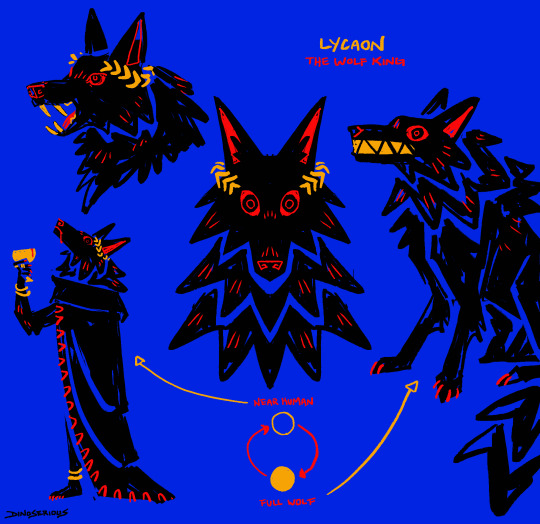
concept roughs. just getting some ideas down
#associated w the setting tiber n bazal are in. this guys like the antagonist of like the 4th arc of a hypothetical comic of them lol#if ive never outright stated tiber and bazal are situated in ancient greece#also something abt this style and concept together makes me feel like im accidentally cribbing off of several artists. sorry to whoever o7#btw near human means aside from the head. anatomy is basically human aside from fur claws and tail#sketch#wolfthing#eyestrain
791 notes
·
View notes
Text
I stg if I see one more "Justice for medusa's TRUE story!" post I'm gonna kill someone.
(TW: Assault mention)
The medusa is assaulted by posidon then cursed by athena for being assaulted in her temple only appears in Ovid's Metamorphoses, which is written as a purposeful subversion of Greco-roman myths. most are reframed or rewritten from just kinda a thing that exists or a black and white moral tale of why you shouldn't be hubristic to full on tragedies on the part of the person often getting their comeuppance or the monster. Heck in book 13 we get a love story starring Polyphemus, the cyclops from the Odyssey.
In general mythology, Medusa is just another monster. Ovid revises the myth to turn it into a tragedy. I absolutely love ovid's work, he does so many clever things with the myths, but for the love of the gods its the furthest from the real version you can get
#And yeah obviously its greek mythology so theres no set canon and you can kind of pick and choose tellings#but Ovid's one isn't a tradition of belief its just literature#its damn good literature but in terms of religion its like claiming good omens is part of the christian canon#classics#ancient history#tagamemnon#ancient rome#greek mythology#medusa#ovid#latin literature#ancient greece#mythology
407 notes
·
View notes
Text
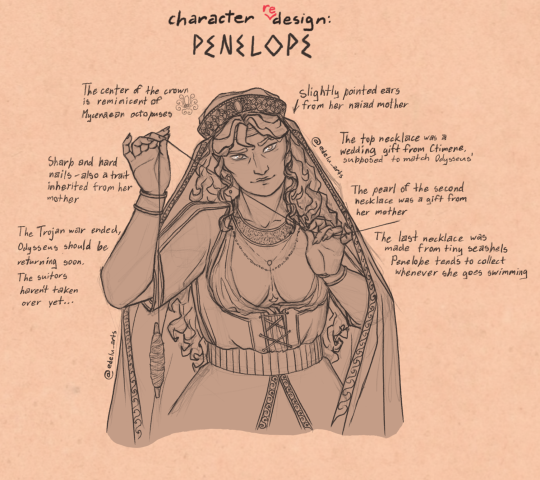
Really happy with how she turned out! I decided to give her some naiad features, inspired by this post and it was really fun! I hc that she can breathe underwater (even though she doesn't have gills. Do naiads have gills?), although I am not sure if she can do it freely or for a limited amount of time 🤔
The fabric piece covering her chest was loosely inspired by 18th century neckerchiefs, because I wasn't sure how the Mycenaean open chest fashion would fly with the censorship here or on other platforms ¯\_(• ▽ •;)_/¯
#I can leave comments and reblog posts again#yay#the odyssey#tagamemnon#penelope#character design#my art tag#I hc that she took over Odysseus' duties while he was away and got to be a reigning queen for about 10-13 years#until the suitors took over. It's a pretty long rant and I can't fit it into tags#this is her design before that#her being a ruler wouldn't really have been possible by Homer's time because of how the ancient Greece treated women#but since the story was set in Mycenaean Greece... maybe? Just maybe she could have enough authority for the assembly to take her seriously#epic the musical#epic the musical fanart#greek mythology#maybe this hc would change as I learn more things about history#but for now it's here ¯\_(ツ)_/¯
425 notes
·
View notes
Text
why was i cursed with the strange and obsessive need to think about everything so hard. life would be so much easier if i just was like, okay
#thinking about how i just spent an hour trying to think of why mamma mia is set in greece#which resulted in me diving into lord byrons wikipedia page#to see if maybe it’s bc donna is meant to be a modern lord byron and sophie a modern ada lovelace#spoiler: no. that makes no sense#but like i did just spend a really long time trying to figure it out#caroline speaks
316 notes
·
View notes
Text
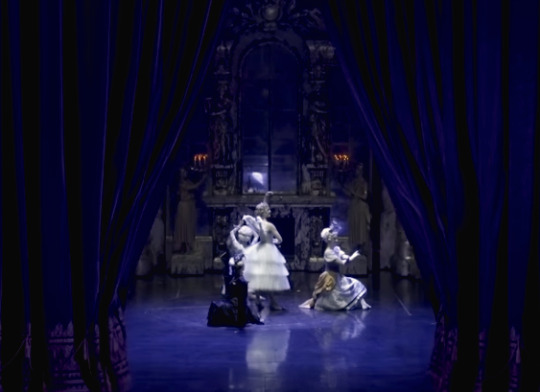
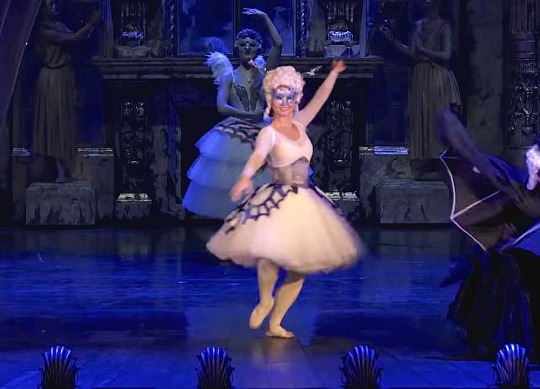
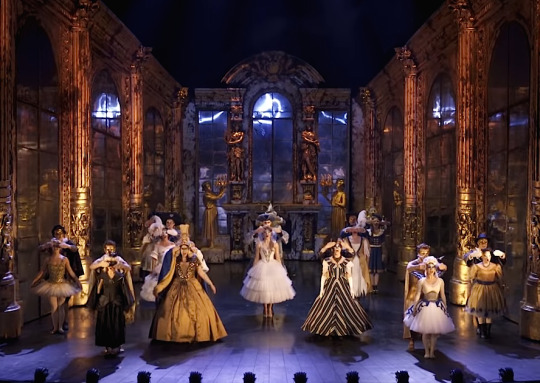
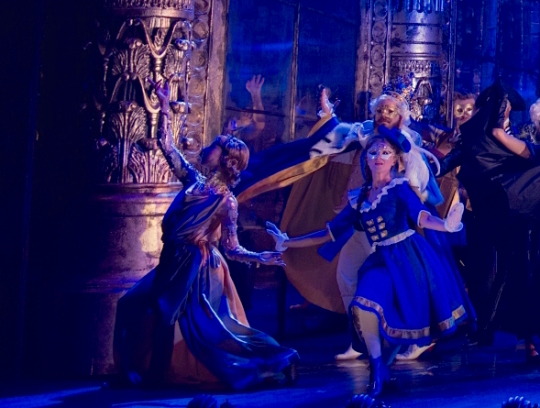
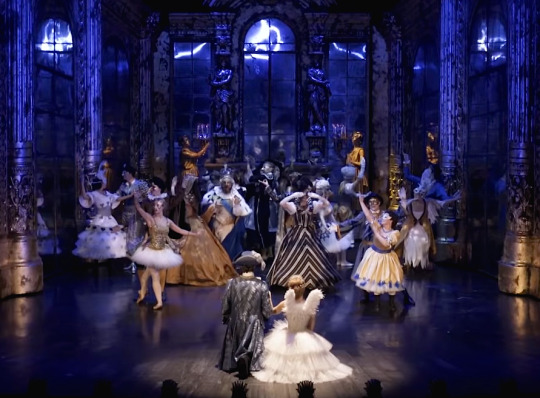



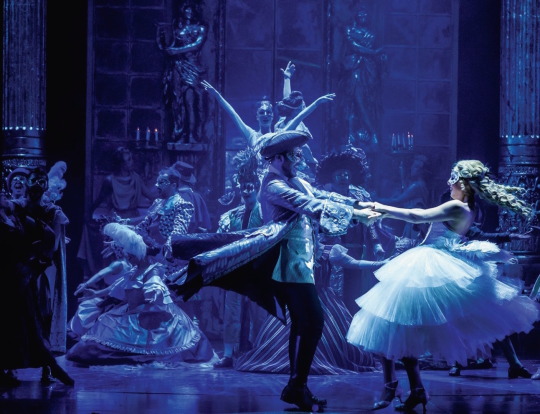




THE GOLD STATUES IN MASQUERADE
In the version designed by Andrew Riley (Romania, Norway, Greece, Middle East Tour) the middle mirror set is flanked by four gold sculptures - two at the mantle, and two next to the mantle, carrying candelabras. During Masquerade the candelabra sculptures breaks free and dance with the other guests - which is a nice surprise. So here is a photoset devoted to that!
Norwegian promo video
Norwegian promo video
Norwegian promo video
"Gold statue" dancing, Oslo 2018
Norwegian promo video
"Gold statues" backstage in Oslo 2019
"Gold statues" backstage in Athens 2023
"Gold statues" backstage in Riyadh 2023
"Gold statues" in place, Thessaloniki 2020
"Gold statues" in place, Athens 2023
"Gold statue" dancing, Riyadh 2023
"Gold statue" dancing, Riyadh 2023
Harriet Jones and ballerinas in Riyadh 2023
(extra shout-out to the crazy gold makeup in Oslo!)
#phantom of the opera#masquerade#costume design#set design#andrew riley#corps de ballet#gold statue#poto norway#poto greece#poto middle east tour
55 notes
·
View notes
Text
i managed to look up this click-and-point + hidden-object finding game i played during my childhood called "mushroom age" and girl what is. what is with this plot FDGHDGH
#i distinctly remember how u had to go to ancient greece and make yourself a body out of. mushrooms and it really did not register#how craxy this game went lmao#and also that it was like aa time travel game#also freakign the ancient greece setting already having the sculptures be broken and lost their paint is so funny to me adfghd#then again this game was made in 2008 i think asksksks#sunnysiderambles
144 notes
·
View notes
Text
God of War in Egypt
I kind of wish that the God of War sequel series had taken place in Egypt instead of Midgard. Aside from just loving Egyptian Mythology and it being severely underrated, I really think it could have worked thematically with God of War.
Let me explain.
So, the most famous myth in Egyptian Mythology, and arguably the most important, is the succession crisis between Horus and Set. Basically, Horus is the son of Osiris, the previous King of the Gods, whom Set, Osiris’ brother, murdered and took the throne for his own.
But, it’s not so cut and dry. See, the original King of the Gods was Ra, the creator deity, who was forced out by Isis, mother of Horus and wife of Osiris, and then forced him to name Osiris his heir. Set was Ra’s greatest general and oathsworn warrior, and by all rights should have been king after Ra stepped down. So Horus’ claim isn’t as ironclad as it appears.
So, why does this work?
Because it’s a legitimate divine WAR. A war where no one is clearly in the right or wrong, and both sides have to stand on the strength of their morals, rather than being ruled by a generic fantasy Evil King you need to rebel against.
So, picture this for the God of War sequel series:
Kratos makes his way to Egypt after the fiasco in Greece, and there he meets Nephthys, the sister of Isis and a Goddess of Night, the Dead, and Air. Nephthys is in hiding as she doesn’t want to get involved in the war between her family. She knows who Kratos is, he’s got a reputation, and hides her identity as a Goddess, tending to his wounds. They end up falling in love and having a child together, whom they name Atreus. But Nephthys gives him a different name in secret.
She names him Anubis.
When Atreus is young, the family is thrown into the Succession War when Nephthys’ identity is revealed. This obviously pisses of Kratos because he’s still in his “hates all the Gods” thing and thinks Nephthys used him. But he still loves her, and despite the tension the three of them try to keep themselves together and try to stay alive in the midst of this divine war.
They don’t really like either side of the war, and both occupy a somewhat villainous position in the beginning. Horus is an arrogant jerk and Set is a brutal warrior. Both are meant to be a parallel to Kratos as well, Set having a similar backstory and warrior mindset and Horus emodying the brutal hateful anger at everything that made Kratos destroy the Olympian pantheon.
Basically, Atreus/Anubis in these games would be Kratos’ opposite. He’s gentle and weak where Kratos is brutal and powerful. Atreus’ unique ability is to communicate with the dead, drawing power from them and laying their spirits to rest. It’s this power that makes him indispensable to the war, as he gains the ability to do the same with dead Gods as well, including Osiris.
Ultimately, it’s revealed that Apophis, the Chaos Serpent, has been manipulating both sides this whole time in an effort to throw the world into chaos. Isis finally relents her mbition, Horus unbend his pride, and Set stops fighting.
They end up putting Ra back on the Throne for the coming conflict with Apophis, and the gods recognize Atreus as Anubis, one of their pantheon. Kratos is forced to learn to trust Gods and realize that Ra is not the tyrant Zeus was. He forgives Nephthys for her deception and accepts his son as a God, and they work together against Apophis.
I dunno. I just think it could work.
#incorrect super smash bros#God of War#God of War Ragnarok#Ragnarok#Egypt#Greece#Mythology#Norse#Egyptian Mythology#Greek Mythology#Norse Mythology#Kratos#Atreus#Isis#Ra#Osiris#Set#Setekh#Seth#Nephthys#Apophis#Anubis#fan#fanfic#fanfiction#game#game idea#idea#thought#musing
374 notes
·
View notes
Text
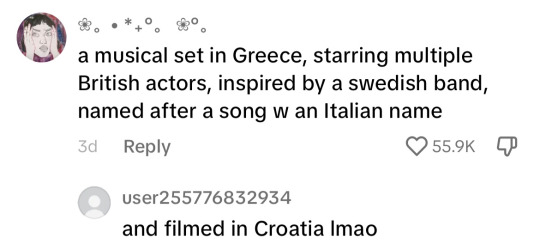
IM SOBBING OVER THIS DESCRIPTION OF MAMMA MIA
46 notes
·
View notes
Photo
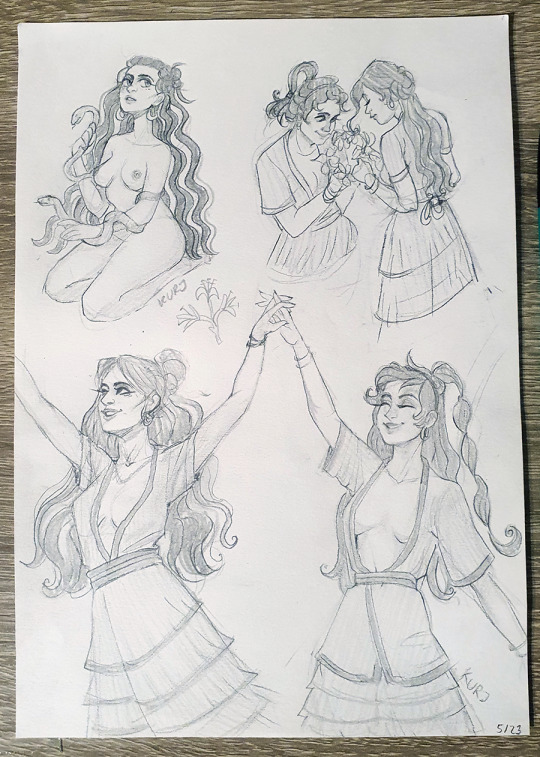
girls just wanna have fun
#minoan#bronze aegean#ancient greece#ancient crete#tagamemnon#kurjdraws#pencil all smudged up lol#im doodlin a lot to flesh out some characters and settings#making a comic rn#gals being pals
93 notes
·
View notes
Text


fake ancient greece! in which a demi god soldier knocks up the oracle of his god-parent and there’s probably more political intrigue than strictly necessary
#mpreg#due date delivery#i have three stories i've written over 10k for that take place in this fake ancient greece/rome setting lmao#honestly you can fit a lot of gender into an oracle. there's one i was thinking about when i was making this oc#altho i'll also be honest and just own up to the fact that i thought it'd be interesting to do something where characters fuck in a temple#and then the birth happens in that same temple. divine heroes or whatever. etc etc etc. symbolism
1K notes
·
View notes
Text


Ancient Poirot Drinking cup -- ok no but please i can't be the only one to see this.
(High-handled drinking cup (kantharos) with the molded face of a man on each side; Greek, East Greek, Archaic Period, 550–530 B.C.)
#not bird related. just felt it deserved to be shared#poirot#ancient greece#ceramics#<- set of tags i did not expect to use together at any point#hercule poirot
53 notes
·
View notes
Text
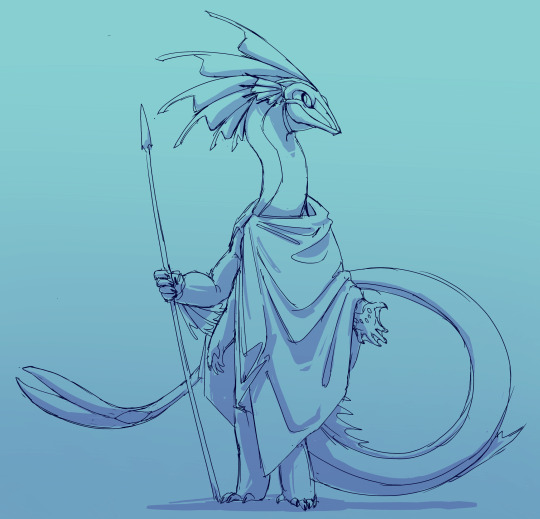
chlamys
#tiberius the manfish#anthro#sketch#baz n tiber are vaguely set in ancient greece but i need to hunker and do a lot more research before saying that for certain#but! just wanted to do some clothing exploration. this is not a Standard Fit (naked under the chlamys) but i like the reference picture#and didnt feel like figuring out chiton folding rn#when did it become 1am. hello
266 notes
·
View notes
Text
REMINDER:
There was no corn in ancient greece. NO CORN. NONE.
#ancient greece#no popcorn either what a sad sad time to live#anyways yeah I often see corn mentioned in like ancient greek settings or whatever#even that novel on alcibiades mentions corn routes and im like#THERE WAS NO CORN OKAY
55 notes
·
View notes
Text
Zultanekh/Djoseras snippet
(Alright I'm doing it. Since I am showing no signs of recovering from The Twice-Dead King anytime soon, I guess I'm making this into a fic 🤣
This is a snippet of something much longer. Most of it is post-biotransference, but this bit is specifically from their necrontyr years, when the Ithakas-Ogdobekh war had not yet ended and none of them were the people they ended up becoming. The two princes discuss the kingships they will never take. More below cut.)
--------------
Though the orbuculum he sees Djoseras unmoved. "Better to die than to merely live."
"What, better to die like a dog? Are you that afraid of Zultanekh?"
The Crown Prince chuckles. It is a fine quality of Ithakas, their laconicity, but they leave too much room for interpretation. "If this one is so much of a threat, I hate to imagine what you think of Anathrosis! Or perhaps it is not that. Perhaps what you want is a written oath of your safe passage?" He follows this with a wink, for they both know such a document could only be part of a surrender. According to the hekatic past of the Ogdobekh, it is entirely correct for them to demand this of their neighbours, since Ithakas should never have seceded from their kemmeht in the first place. "That could be granted easily. Why, Zultanekh shall commission the finest scribe among the five dynasties, the lead archivist of the Nihilakh, and will have it engraved in gold if Djoseras demands it. Is it the least you deserve? I suspect it is."
"I require nothing from you, Crown Prince."
"But you must, dear Djoseras; moreover, your dynast must, since he has sent you here." He is serious now. Zultanekh leans in closer, his hands steepled in front, oddly nervous. "You require my defeat and my humiliation. You are not likely to receive it, Kynazh Djoseras. What was Unnas's gamble? At best his victory, at worst the stalling of the frontline - but you have fought us for many cycles of the moon, and the best you've done is merely his worst, with the unimaginable worse to come if he does not rein it in. At least, I hope he has not imagined it. It would be sad if he sent away his only heirs wishing they would die."
He allows himself a moment of glumness. Technically Zultanekh comes off worse in a headcount, as he is the sole heir to the throne; he is not worried, for he has the whole of the Ogdobekh war machine behind him, but he has never been very certain whether Anathrosis wishes him to live. Wanting him gone on a paranoid hunch would be exactly the kind of thing the phaeron would do.
"In our tragedies of yore there is a recurring turn of phrase, kynazh: inija spase, ali sebe ne mozhet spasti. Why tragedies? Because we find such a man most pitiful. A fine warrior he might make, the one who saves others but cannot save himself. He is no good as a father, a leader, or a dynast, for to damn himself is to damn the whole." And that is the difference between Zultanekh and the rest of the dynasty: he loves his life, and takes as objective truth that everyone else values their own, while the rest of the Ogdobekh would simply shrug and raise their hammers. None of them would ever think to convince their enemy that being alive is worthwhile. "Unnas has lost one son already. It is irrational you should agree to sever his every remaining limb. You know his demands are wasteful: save him, save yourself and your dynasty, and cease those advances."
Then, just to lighten the mood: "It'd be awfully hard to rule Antikef one-handed."
Djoseras does not dignify this with an answer. He glances to the side instead. "Isn't my brother wonderful?"
Zultanekh cranes his head to look outside. Indeed, Oltyx is magnificent. Zultanekh is genuinely astonished to see how much the boy has grown, easily a hand past his elder's height, his shouts powerful and unwavering in the face of the charge; whether it is war that changes a man, or if it was the simple passage of time, the younger scion has not been done a disservice. As the two princes watch on Oltyx rallies his soldiers on the ground, his sword flashing uncanny silver through the slaughter-mist, and soon they are all vanished out of sight.
When Zultanekh turns again he finds Djoseras is watching him. "Might I ask you a question, Crown Prince?"
"Might you?" Zultanekh repeats. "Ask away."
"What is a king?"
"He is the Creator beyond all." The only king (lord, phaeron, Patriarch, still years away from reinvention) Zultanekh keeps faith to is Anathrosis. Their relationship is complicated but the awe is very real. "He is the one who weaves pure gold from the barest sand. He is the one who imposes unity over the stars. Like us, they are numerous, but faint and weak while scattered; brought together, their collective light powers our foundries, while we are made masters of the universe. As a miner does to the raw vein, the furnace to the ore and the craftsman to the ingot, our king does to our will and more: he is light itself, the passion of movement, the all-consuming fire of the forge."
"Spoken like a true blacksmith." Djoseras says impassively. Clearly he meant it as an insult, but Zultanekh fails to feel offended: rather than the snarling boasts he is used to, the kynazh's words are more like skolopendrae skittering through the reeds, collecting implications like burrs in their hide. "Certainly it is a phaeron's responsibility to do those things and more, but like so many others you mistake the effect for the essence, the appearance as the truth. I dare suggest, Prince Zultanekh, that a king does not comprise a series of phenomena, but rather the foundations upon which they occur."
Zultanekh feels like he needs to say something, but he suddenly feels lost. Inwardly he follows the motion of those same skittering legs, while the kynazh carries on. "You say you do not understand why I should want to die. I hold in contempt your desire to live. Are you not yourself on the battlefield, subject to the same risks as my brother and I? Our presence here was requested to Unnas, and agreed after his deliberation; your speech implies to me you made no such agreement with your sire. Perhaps he has made a plan to lose you already?"
Zultanekh hopes he didn't see how he clenched his fist in that moment. Djoseras smiles thinly. "You wish to know what I think of Anathrosis?"
Do I? "Yes."
"He is inconstant. He struggles to lose the smallest things, lands and bagatelles, in pursuit of his grandiose delusions, yet he feels no remorse sacrificing the greater things which hold his kemmeht aloft - his one heir the greatest of them all." Djoseras tilts up his chin then, his dark eyes aflame with something far from hatred. "I suggest he ought to be honest about wanting to sacrifice everything, if he truly values his dynasty, and not his feelings. A true king is neither the fire nor the forge, but the earth upon which they dance and fall; he is not the weaver nor the gold, but the sand from which it is crushed, at once lower and stronger than any of us will ever be. An all-consuming fire will eventually burn down the foundries, but the stones will always endure, and it will befit Anathrosis to take their example."
Zultanekh lets out a quiet hiss. "You are happy to be slaughtered."
"The flesh is ephemeral. I am ephemeral, as is my brother. Unnas is ephemeral, and so are you, even Anathrosis whom you fear so greatly."
There is a hefty pause. Zultanekh thinks he sees something like pity in the other's expression, which seems contrary to this message of indiscriminate sacrifice he's been espousing. Just the first of many Djoserasian contradictions that will fascinate the Crown Prince in the eternity to come.
"If I should fall, my brother will take my place. You have seen for yourself how much he has learned. Anathrosis nurtured his own foe, poor creature, and he did not even realize it; you are the best among the Ogdobekh, Prince Zultanekh, but you are only one, and you do not understand what you are fighting for." Djoseras smiles. "You are a just man, a reasonable man. It does you no good to assume Unnas's intentions, for Oltyx and I fight not for his person but our legacy, and all of Ithakas stands behind us. I pray you will reassess your intentions swiftly, or else prepare for the ice of eternal night."
All tension leaves Zultanekh like an arrow. He chuckles - first hollowly, then with legitimate mirth, that he is still capable of surprise - and strokes his hand through his coppery beard (a redhead, of course he was a redhead, he forgets this often) as he sits back on his chair. "So that's what it comes down to in the end! In any case, I suppose we must destroy one another, as expected. Yet have you spoken admirably, kynazh? You have. Why, that's the nearest thing to a love-speech that was ever made to Zultanekh."
It is Zultanekh's personal policy to break the ice after frosty words have been exchanged. Officially, it's because he wishes to avoid things escalating at a poor moment's notice; in truth, it's an excuse for absurdity. "Do not be concerned that your judgement falls incongruent with ours. Is your Oltyx a remarkable fighter? Certainly. He strikes me as a worthy scion, and he brings fresh blood to the fight, better equipped than us elders." Soft stone, fluid steel - flyting, or flirting, there need not be much difference. Zultanekh grins. "But your brother, he is too young for me, is he not? Zultanekh will not reckon with him. If you desire to petition a peace-match between ourselves, it is not his praises you should sing - but your own."
He expects Djoseras to ignore him then, or give him that look of insane violence he showed when Zultanekh last threatened Oltyx's life. What he did not expect was for Djoseras to stare at him in silence, neither dismissive nor angry, nor even as if Zultanekh has said anything asnine. The kynazh often keeps a blank face in conflict, but this is not like that, in that it is not deliberate.
The best way to describe his expression is transparent. Regrettably Zultanekh is not given more time to contemplate it, for he is briefly called away to receive a report. When he comes back a mere five minutes later, he finds Djoseras is no longer there, the orbuculum smooth and empty once more.
"The stones will endure," the Ogdobekh prince mutters, resting a hand atop the smooth crystal surface. Djoseras meant bedrock, but Zultanekh ends up thinking about a pebble instead, skipped merrily across the surface of a long and silver lake; leaving wide ripples upon it, then sinking into its heart, its gleam white and secretive under the surface. "Well, then."
He has been at war for too long to hazard this emotion.
#warhammer 40k#the twice dead king#necrons#necron#oltyx#zultanekh#djoseras#zultanekh's 'turn of phrase' is in old church slavonic. since the ogdobekh-ithakas relationship seems to be that of medieval russia-greece#like i'm sure that's canon. 'kynazh' connects to князь. they are both concerned with what is 'orthodox'#ogdobekh space literally has a world named 'vorronezh'... like... like 'voronezh'? the real life russian city воронеж? 😳#i jump on any opportunity to use medieval/classical languages in anything i do so i was pretty happy about that setting ngl#i just like being able to write again
20 notes
·
View notes
Photo


A GREEK GOLD GEM-SET FINGER RING
LATE HELLENISTIC, CIRCA 2ND-1ST CENTURY B.C.
1 in. (2.5 cm.) lo.
The ring is decorated with a sun disk and two feather motifs, which are derived from Egyptian mythology and became popular during the Late Hellenistic period. A cabochon garnet has been used for the sun disk and the feathers are formed with two pieces of a black stone.
#A GREEK GOLD GEM-SET FINGER RING#LATE HELLENISTIC CIRCA 2ND-1ST CENTURY B.C.#treasure#gold#jewelry#greek jewelry#ancient jewelry#ancient artifacts#archeology#archeolgst#history#history news#ancient history#ancient culture#ancient civilizations#ancient greece#greek history#greek art
90 notes
·
View notes
Text
100% convinced one of my friends will end up famous and then one day y'all will see me on the tv at an event I should NOT be important enough for just because I get bestie privileges
#irl friend who's going to be a fucking. d1 athlete at a REALLY GOOD school. and she's gotten an agent and is setting up papers#to possibly play professionally in greece???? that's absolutely crazy I'm so proud of her real tears in my eyes#I've literally always known I do not have the slightest knowledge of sports but I know how skilled she is everyone has always known it#god I love her. you will catch me in the audience at a professional sports game in the vip section one day idc#and then also of course I'm convinced my online friends will have huge fanbases for their amazing ocs also
7 notes
·
View notes